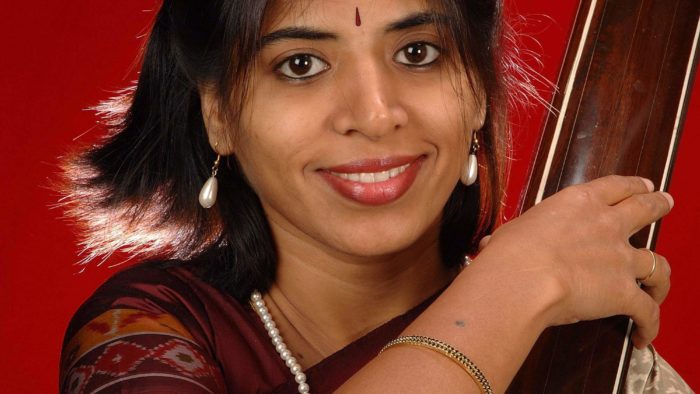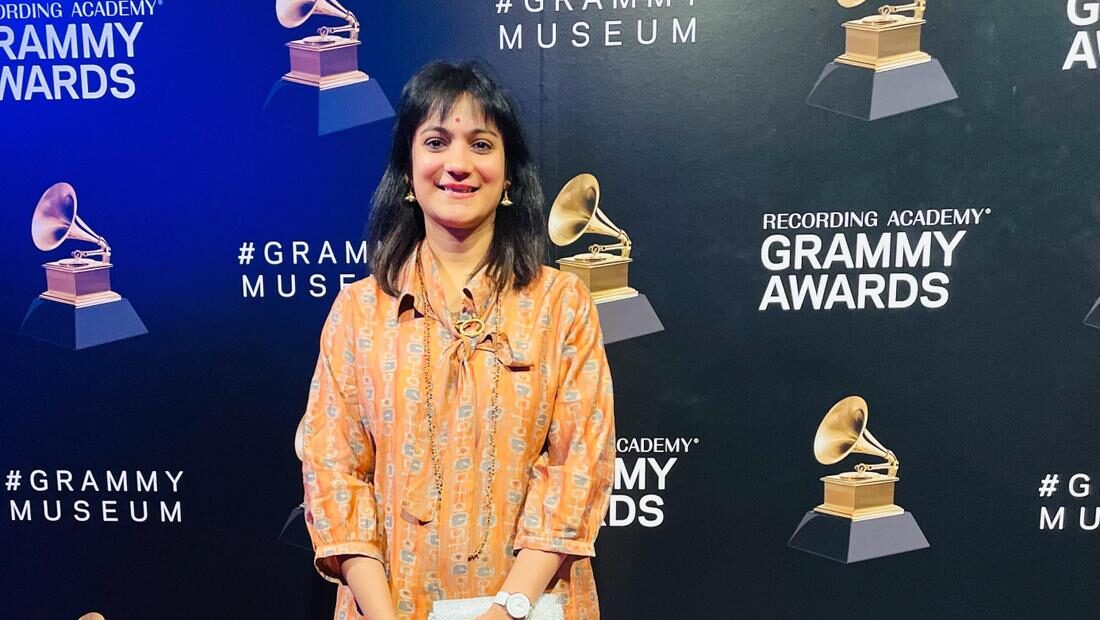Kiranavali Vidyasankar, the granddaughter of legendary Mysore chitravina artiste Narayana Iyengar, is a Karnatic vocalist and chitravina exponent based in the US and is the recipient of a prestigious grant from the Pew Foundation. She will be speaking at Soft Talk 2: Why the Arts at 4 pm on May 2.
On the occasion of Sita Jayanthi, CSP asked her which are her favourite compositions on Sita. Says Kiranavali "Thyagaraja has composed a few in her praise - Sari evvare Srijanakini (Ragam: Sriranjani) and Dehi tava pada bhaktim (Ragam: Sahana). In Maajanaki Thyagaraja pays the ultimate tribute to her by saying that Rama attained higher greatness because of her self-effacing nature. And even though she could have vanquished Ravana, she gives the honour to Rama by allowing him to do his Dharma as a Kshatriya and as her husband. I love the line SrinAyaka yashamu neekE galga jEya lEda which means 'Didn't she ensure that all the fame came to you and to you only'."
In this conversation Prasant Radhakrishnan, a Karnatic saxophonist and composer based in the US, talks to Kiranavali on Why the Arts.
Prasant: Is a life in music a challenge?
Kiranavali: Kids in the US have it pretty hard, just like in India. I know so many talented kids in my student pool who I really think are so gifted, they should be doing nothing but music in life. But you know, parents naturally worry about whether it’s financially sustainable.
Prasant: But how much money is enough?
Kiranavali: We should wish that the field is an easier place for aspirants. There is no guarantee for success, no guarantee for the income model. We just have to wing it and hope for the best. At the end of a kind of a qualification, you might at least make a decent living out of it. People quit arts to take up other fields where there’s at least some amount of financial security.
Prasant: Although I think if anyone is going into music to have financial security, they probably will not do very well...because why do we do music?
Kiranavali: We are doing it for the pleasure, but whoever said that pleasure should only come at the cost of penury?
Prasant: Oh, of course not. It’s not that we go in thinking “I’m going to play music and become poor" (both laugh). Of course, that would not be a good attitude…
but it’s almost as if the finance, the idea of how I’ll make the money just disappears...I’m just speaking from my experience...because music itself, to me, is a very deep inner path, especially our Karnatic music. It’s like there is something that made you pick up the instrument, there is something that made you come in contact with a Guru and something that made you keep practising and going deep into that...and that same something keeps you in that. That just keeps moving you along, regardless of what’s going to happen...we have no idea, so you get to a sort of “not-knowing” what’s going to happen. You get comfortable in that. There’s actually a certain stability in not-knowing. I think musicians have a special access to that. (Both laugh)
Kiranavali: The risk we take is enormous. It’s an artistic risk. I keep wondering, why do we do that? But that’s where I think we get our kicks. Subjecting ourselves to that kind of a risk keeps us going.
Prasant: That’s an interesting perspective, it’s very adventurous in a way. It’s kind of like embracing a certain fearlessness...that regardless of what happens, it’s ok. Music is so personal. When you’re playing music, in a way, there’s a vulnerability right? You don’t really have to bare your soul when you are talking. But when you play music, it comes straight from the heart.
Kiranavali: All your weaknesses are on display, pretty much, along with all your strengths. You cannot hide away from them, you cannot hide them. So you have a bad voice, you are in bad form...sorry. There’s no way to hide away from them. Even composers like Thyagaraja, even in their artistic expression, you can actually see their moods, through their works of art. Thyagaraja, one day he wakes up in very a positive mood, one day he wakes up in a very negative mood. One day he is berating Rama for giving up on him, one day he is telling Rama “Oh, thank you, you have always been there for me.” In one krithi he says, “So I am an anadha,” in another krithi he says “I am not an anadha (orphan).” So even in composers’ works you see the vulnerability where you can actually judge them for it today. In Dudukugala, for example, he lists all the things that men are susceptible to. Adopting an autobiographical manner he asks Rama, "How can you protect one who is so susceptible to weaknesses?” So we can sit and speculate, “Was Thyagaraja given to all these vices?” I don’t know if Thyagaraja cared, but it’s there for everybody to sit and judge. On hindsight, he seems to have escaped that judgment, but during his lifetime we never know what he faced. But his artistry is an expression of all his vulnerabilities and all his thoughts.

Prasant: That’s very beautiful because I wonder sometimes with the advent of very polished performance art...not so much that we need to cultivate it or anything, but that perhaps some of us have forgotten about that vulnerability that Thyagaraja has shown so naturally...and without even trying to hide it in any way. So it’s a hint…that every aspect of the human expression is actually, in a way, divine. It’s part of the divine play. I think it’s very special that we have access to that in this kind of music.
Like even in a concert, for example, even the cracking of the voice or the feedback of the sound system, or those things that we usually feel...we cringe or something, even that is part of this whole thing.
Kiranavali: Yes, but we actually have a very low tolerance. Indian culture still has a low tolerance for such natural moments of weakness, unless of course we love the artiste in general. But I guess maybe that kind of prejudice is inherent to all art forms and all artistes. If you like them, you like them, otherwise you can say anything you want, pretty much.
Prasant: The commentary of other people can sometimes keep us, or at least some people, from wanting to fully express their music.

Kiranavali: Absolutely. In some ways, I think male vocalists have it a little easier compared to women vocalists...because in terms of the voice and everything, the expectations of a female voice is much more than that of a male voice, in Karnatic music at least.
Prasant: In terms of purity of the voice?
Kiranavali: Has there been any women vocalist who we can enjoy despite a recalcitrant voice?
Prasant: That’s a good point.
Kiranavali: If you just look at most female artistes, they wouldn’t stand a chance, without what is conventionally considered pure and attractive in our music. I find that in Western music they do like dryness, and all this…
Prasant: That’s true, they feel it gives it more character.
Kiranavali: Yes, but we don’t have that same viewpoint about our female voices. But I think in a way that also reflects that the society itself has always pursued perfection as a high ideal. The characteristics of a great voice has been studied and written about in so many texts. So we still somehow idealize that. Now for example, even lower pitched female voices...it’s harder for them to make a name, we all want high pitched female voices.
Prasant: That’s true. So you feel that if someone is a little lower pitched, the audience or the musical community at large is less likely to enjoy it or promote them? There’s a whole segment of the female vocal artiste population that we’re not getting an opportunity to hear?
Kiranavali: That also exists.
(Register for today's talk at https://indicacademy.zoom.us/webinar/register/WN_iRgqf_uhRqeZiY1M1xIeFw)




